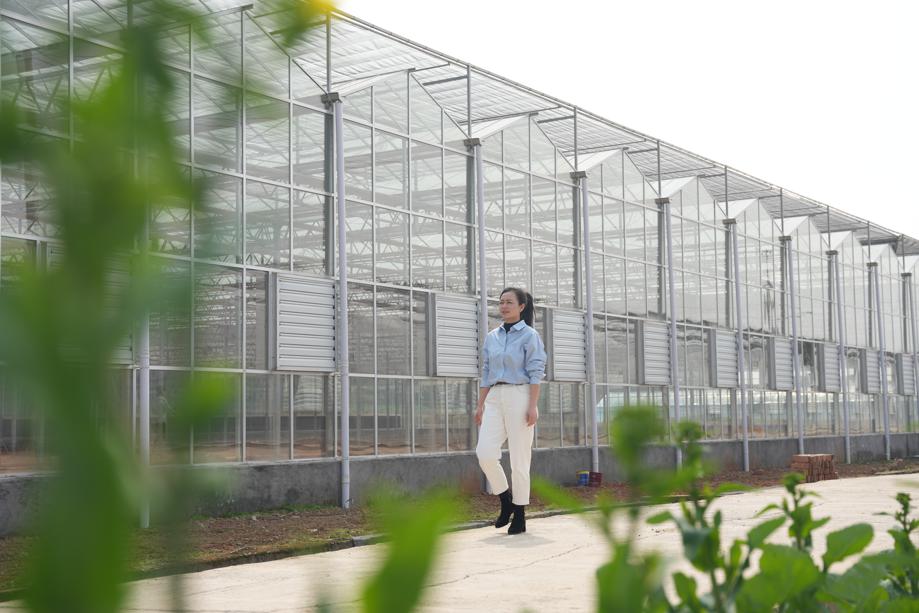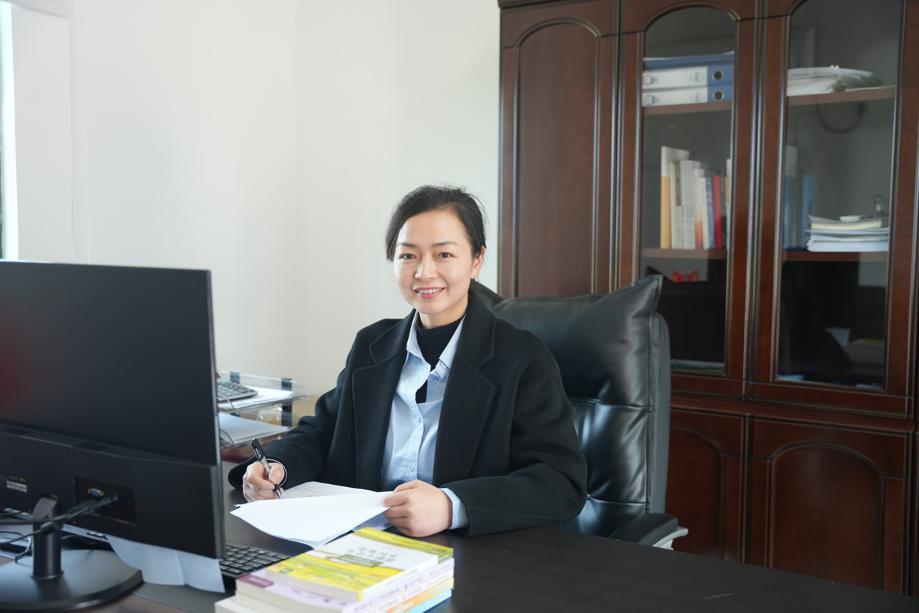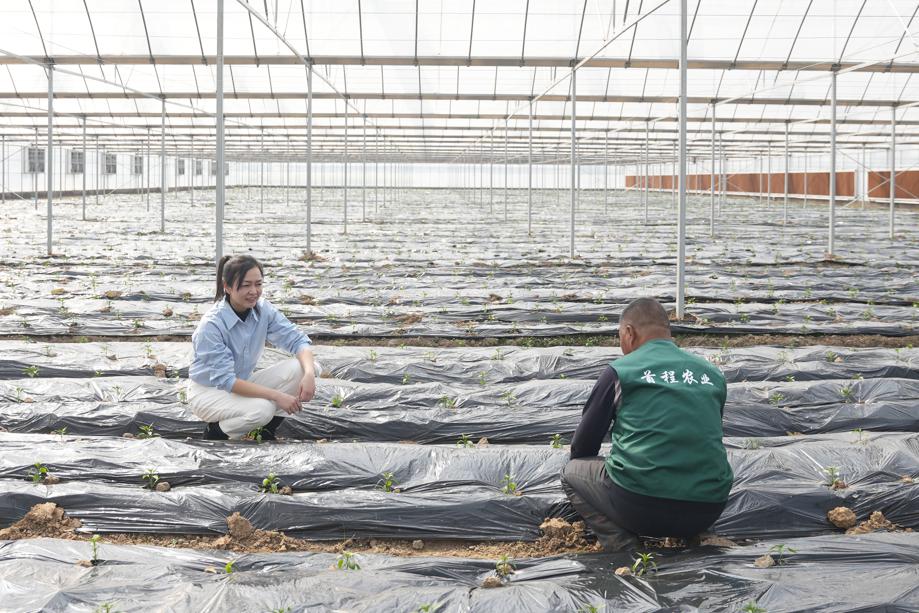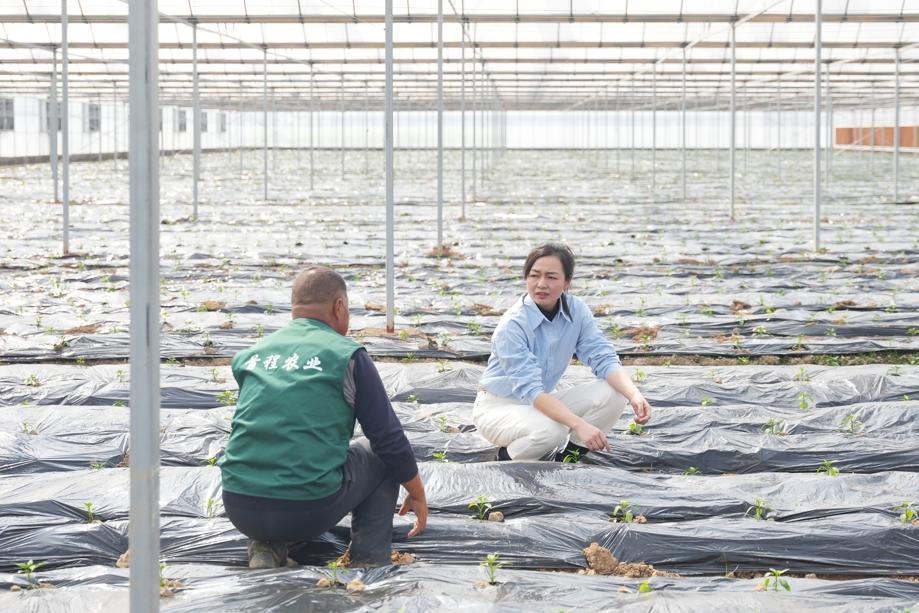Woman's greenhouse business pays dividends


Ever since Chen Yan quit her job at a State-owned enterprise in Changsha, Hunan province, and returned to her home in Xiangtan in 2016, she has been working to develop her business and help fellow residents pursue prosperity.
Born into a rural family in Xiangtan in 1986, Chen studied hard at school and obtained a master's degree from Xiangtan University in 2011.
Then she got a job opportunity in the finance department of the Hunan Branch of China National Petroleum Corp in Changsha.
"But I've had the idea of starting my own business since graduation," she said. "I have often thought of my fellow villagers and wanted to help them out of poverty."
In 2016, she quit her job and returned to her hometown to found a company involved in vegetable distribution. At the beginning, she faced a series of difficulties, including a shortage of funds, laborers and market resources, but she persevered and finally found success.
"My customers have increased to dozens from two initially," she said. "The company's turnover exceeded 25 million yuan ($3.64 million) last year."
In 2022, she founded Xiangtan Shoucheng Agricultural Development Co, building a new modern industrial park in the city's Zhengjiang village. She integrated ecological vegetable planting with picking experience, science education and labor practices.

"Total investment in the project exceeds 50 million yuan, covering an area of 33.3 hectares," she said. "During the first phase of the project, a greenhouse of 60,000 square meters had been built to plant eight varieties of chilis."
In the greenhouse, there's an irrigation network of 60,000 cubic meters, through which fertilizer can flow directly to the roots of the seedlings, achieving a high standard of integrated drip irrigation with water and fertilizer.
The greenhouse can automatically adjust the factors required for crop growth via real-time monitoring of soil, moisture, temperature and other environmental conditions.
The intelligent greenhouse promises a bright future for the small village.
"In the past, people worked under a traditional agricultural model of self-production and self-marketing," said Jiang Yongjun, the village's Party secretary. "Now, the company's advantages of market, capital and technology guide the centralized planting of crops in contiguous plots."
For those who didn't participate in the land transfer, the company will provide them with free vegetable seeds and teach them planting techniques. It will then buy back agricultural products at a unified market price.
"Rural areas can provide a vast space for young people to realize their aspirations," Jiang said. "I hope I can inspire more young people to help change villagers' traditional mode and increase their incomes."




